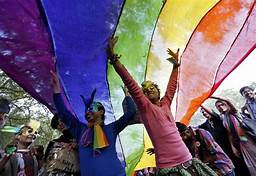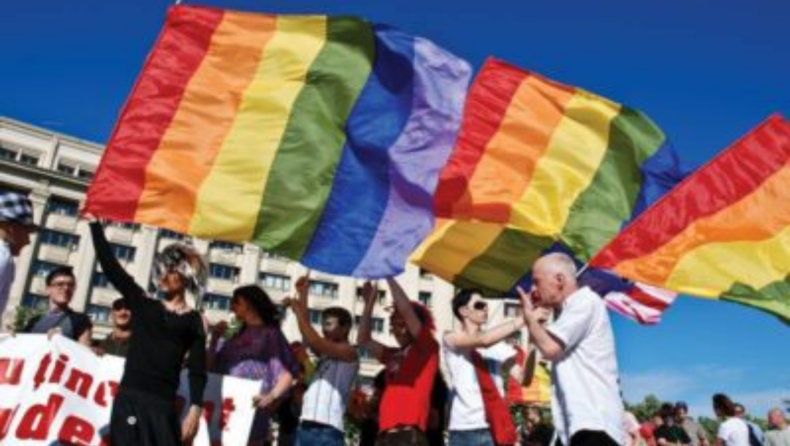Introduction:
The condition of the queer community in India has come into the mainstream media in recent years, notably during decriminalization of article 377, in 2014 when Tiruchi Siva introduced the first trans rights bill, and in 2019 when the BJP sponsored trans rights bill was passed in both the houses. It is ironic how in today’s society the queer community is considered to be something which “surfaced recently” or as some say, came in through western propaganda though there are numerous references to LGBTQIA+ persons in epics like Mahabharata and Ramayana through numerous stories like that of Shikandi, a presumably trans man who had “transitioned” when a yaksha granted their wish. Stories of Budh Graha, a person who was born neither a man nor a woman and married a trans woman. In Ramayana, the story of Yuvanashva comes to light, a male who becomes pregnant and gives birth. The epic also mentions a story about the Hijra community and their encounter with Rama when he returns to Ayodhya from vanavas. Rama finds them outside the gates of Ayodhya and takes them in with him saying that there cannot be a Rama Rajya if people get left out based on their gender.
Introduction:
The condition of the queer community in India has come into the mainstream media in recent years, notably during decriminalization of article 377, in 2014 when Tiruchi Siva introduced the first trans rights bill, and in 2019 when the BJP sponsored trans rights bill was passed in both the houses. It is ironic how in today’s society the queer community is considered to be something which “surfaced recently” or as some say, came in through western propaganda though there are numerous references to LGBTQIA+ persons in epics like Mahabharata and Ramayana through numerous stories like that of Shikandi, a presumably trans man who had “transitioned” when a yaksha granted their wish. Stories of Budh Graha, a person who was born neither a man nor a woman and married a trans woman. In Ramayana, the story of Yuvanashva comes to light, a male who becomes pregnant and gives birth. The epic also mentions a story about the Hijra community and their encounter with Rama when he returns to Ayodhya from vanavas. Rama finds them outside the gates of Ayodhya and takes them in with him saying that there cannot be a Rama Rajya if people get left out based on their gender.
Trans Protection Bill :
Special focus needs to be put on the recent trans protection bill which was opposed by the queer community through pride parades, rallies, protests, etc. This begs the question, why is the bill which is meant to benefit trans people being opposed by the very same group? Trans activists like Grace Banu have pointed out what they claim to be, the unfair provisions of the bill. One common criticism was that the community was not included in the law (bill) making process. Its views, its wants were not heard and not addressed enough in this bill, they claim.

‘Legalising Gender’
A heavily criticized provision was the procedure through which people can get their gender legalized. The first step is where an individual goes to the district magistrate and applies for a “transgender certificate” which will be done based on the person’s self-declared identity. After this certificate is availed, they can apply for a change in the gender certificate. The problem is with this step as people need to give proof of sex reassignment surgery by a hospital official. What this essentially does is create a mold into which every person shall fit into to legally be trans. Furthermore, the officials must be satisfied with the validity of such certificates. Point to be noted, a person need not undergo surgery to be trans. They need not even take hormone therapy. They may want to dress masculinely or femininely, cut their hair or grow it, wear makeup or put on dresses instead of surgery but it is up to the person. Isn’t the right to privacy being violated when this process makes it compulsory for people to get surgeries to be recognized as valid? Isn’t it being violated when the person`s queerness is determined by someone else? Apart from the right to privacy won’t this provision violate the NALSA judgment? The UN, WHO, and other organizations have long said that there needs to be a separation of legal and medical processes in such cases. One need not go through medical processes to get legal recognition.
Punishment for Assault:
The second most criticized part was the provision for punishment for assault or gender-based violence. The maximum punishment which could be given was 2 years. According to the IPC, any offense which has a punishment of fewer than 3 years is bailable. Activists say that this will promote inequality and will do little to stop the violence as the punishment for assaulting a cis woman or child is more than the punishment for assaulting trans people. This gives air to the notion that trans people are “less” than others and somewhere is going with the thought process that trans people are meant to be sex workers.
Conclusion:
The bill even has positively uplifting clauses such as those laying down that discrimination cannot be done in education, employment, and other issues. Though the bill itself is much needed, it has not been able to address other issues which include civil rights like marriage, adoption, and social security benefits. As a trans woman in a pride rally said, “What if I want to adopt a child? What if I want to marry?” An issue that arose with the NALSA judgment itself was the classification of transgenders as a “third gender.” A person transitions mainly so they can belong to a particular gender binary (though there are Nonbinary trans people). Even after asking them to undergo surgery to “fit in” and get the certificate, will they still be classified as transgenders instead of male or female? If any trans people are non-binary, wouldn’t it be better to have a third option in all forms (all official state forms where gender needs to be specified) along with “male” and “female”? it could be a simple “other” option and then space for specification. Such simple provisions could mean life or death for a trans person who most plausibly has already been rejected by the society.
Trans Protection Bill :
Special focus needs to be put on the recent trans protection bill which was opposed by the queer community through pride parades, rallies, protests, etc. This begs the question, why is the bill which is meant to benefit trans people being opposed by the very same group? Trans activists like Grace Banu have pointed out what they claim to be, the unfair provisions of the bill. One common criticism was that the community was not included in the law (bill) making process. Its views, its wants were not heard and not addressed enough in this bill, they claim.
‘Legalising Gender’
A heavily criticized provision was the procedure through which people can get their gender legalized. The first step is where an individual goes to the district magistrate and applies for a “transgender certificate” which will be done based on the person’s self-declared identity. After this certificate is availed, they can apply for a change in the gender certificate. The problem is with this step as people need to give proof of sex reassignment surgery by a hospital official. What this essentially does is create a mold into which every person shall fit into to legally be trans. Furthermore, the officials must be satisfied with the validity of such certificates. Point to be noted, a person need not undergo surgery to be trans. They need not even take hormone therapy. They may want to dress masculinely or femininely, cut their hair or grow it, wear makeup or put on dresses instead of surgery but it is up to the person. Isn’t the right to privacy being violated when this process makes it compulsory for people to get surgeries to be recognized as valid? Isn’t it being violated when the person`s queerness is determined by someone else? Apart from the right to privacy won’t this provision violate the NALSA judgment? The UN, WHO, and other organizations have long said that there needs to be a separation of legal and medical processes in such cases. One need not go through medical processes to get legal recognition.
Punishment for Assault:
The second most criticized part was the provision for punishment for assault or gender-based violence. The maximum punishment which could be given was 2 years. According to the IPC, any offense which has a punishment of fewer than 3 years is bailable. Activists say that this will promote inequality and will do little to stop the violence as the punishment for assaulting a cis woman or child is more than the punishment for assaulting trans people. This gives air to the notion that trans people are “less” than others and somewhere is going with the thought process that trans people are meant to be sex workers.
Conclusion:
The bill even has positively uplifting clauses such as those laying down that discrimination cannot be done in education, employment, and other issues. Though the bill itself is much needed, it has not been able to address other issues which include civil rights like marriage, adoption, and social security benefits. As a trans woman in a pride rally said, “What if I want to adopt a child? What if I want to marry?” An issue that arose with the NALSA judgment itself was the classification of transgenders as a “third gender.” A person transitions mainly so they can belong to a particular gender binary (though there are Nonbinary trans people). Even after asking them to undergo surgery to “fit in” and get the certificate, will they still be classified as transgenders instead of male or female? If any trans people are non-binary, wouldn’t it be better to have a third option in all forms (all official state forms where gender needs to be specified) along with “male” and “female”? it could be a simple “other” option and then space for specification. Such simple provisions could mean life or death for a trans person who most plausibly has already been rejected by the society.













